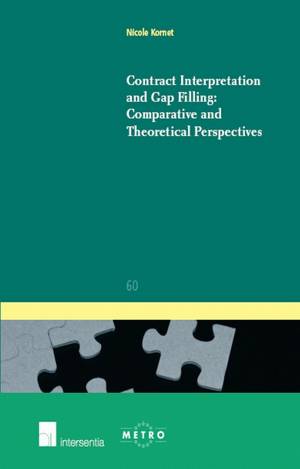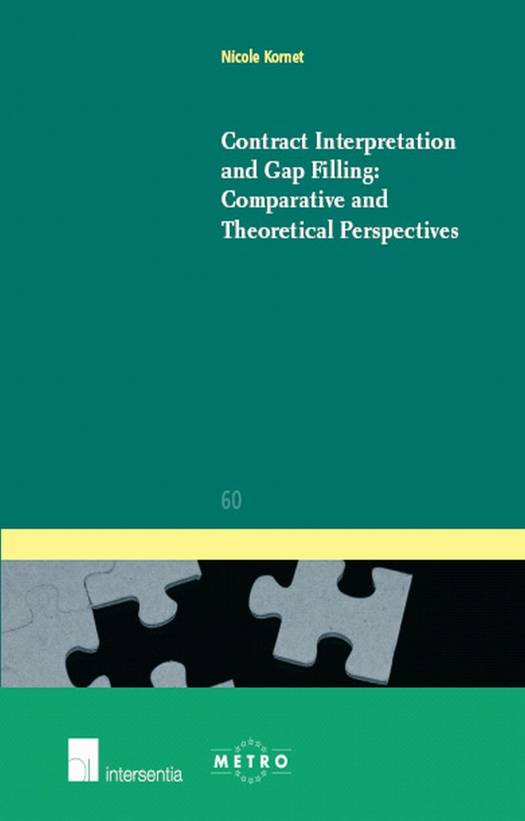
- Afhalen na 1 uur in een winkel met voorraad
- Gratis thuislevering in België vanaf € 30
- Ruim aanbod met 7 miljoen producten
- Afhalen na 1 uur in een winkel met voorraad
- Gratis thuislevering in België vanaf € 30
- Ruim aanbod met 7 miljoen producten
Zoeken
Contract Interpretation and Gap Filling: Comparative and Theoretical Perspectives
Volume 60
Nicole Kornet
€ 106,00
+ 212 punten
Omschrijving
What happens when contracting parties do not expressly provide for a particular situation in their agreement? Is intervention by the courts or legislature to fill gaps in contracts justified? How should those gaps be filled? This book is unique in the way it combines comparative and theoretical perspectives to provide answers to these questions. From a comparative law perspective, relatively little attention has been given to the different interpretative and gap filling techniques available in different legal systems. A comparison of the approach to contract interpretation and gap filling in England, Germany and the Netherlands is therefore provided in this book. Comparative observations are also made in light of the CISG, PECL and the Unidroit Principles for International Commercial Contracts. This book also contains a theoretical component that draws insights and inspiration from autonomy-based theories of contract, law and economics, notions of fairness and socio-legal perspectives to establish why contracting parties leave gaps in their contracts, whether intervention is justified and, if so, how gaps in contracts should be filled. The final part of this book builds on the comparative and theoretical perspectives to develop an interpretative and gap filling strategy that combines responses from contracting parties, the contracting community, the legislature and the courts.
Specificaties
Betrokkenen
- Auteur(s):
- Uitgeverij:
Inhoud
- Aantal bladzijden:
- 485
- Taal:
- Engels
- Reeks:
Eigenschappen
- Productcode (EAN):
- 9789050955911
- Verschijningsdatum:
- 1/09/2006
- Uitvoering:
- Paperback
- Formaat:
- Trade paperback (VS)
- Afmetingen:
- 172 mm x 236 mm
- Gewicht:
- 843 g

Alleen bij Standaard Boekhandel
+ 212 punten op je klantenkaart van Standaard Boekhandel
Beoordelingen
We publiceren alleen reviews die voldoen aan de voorwaarden voor reviews. Bekijk onze voorwaarden voor reviews.











